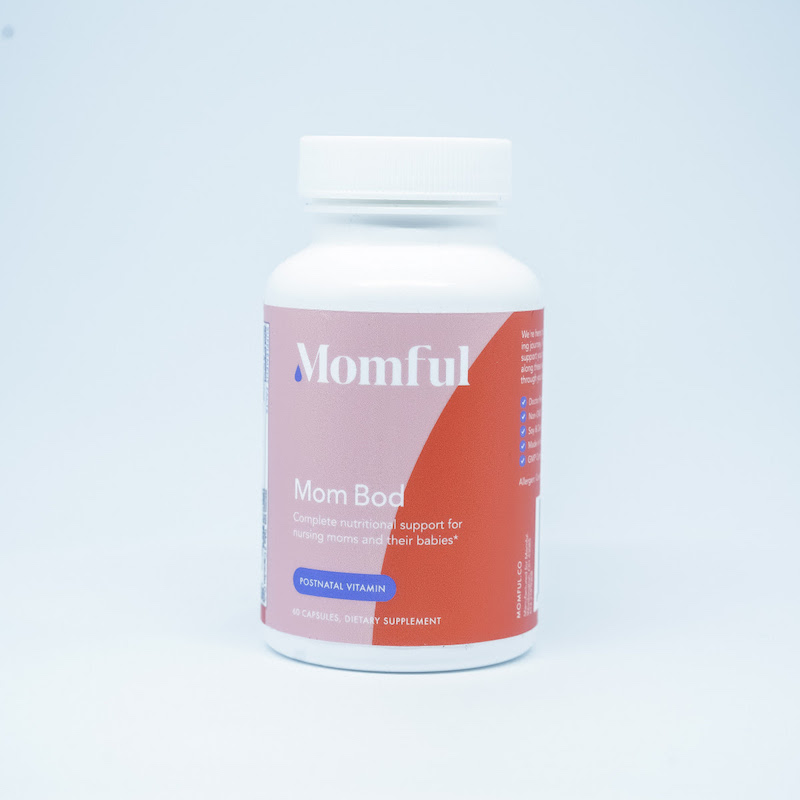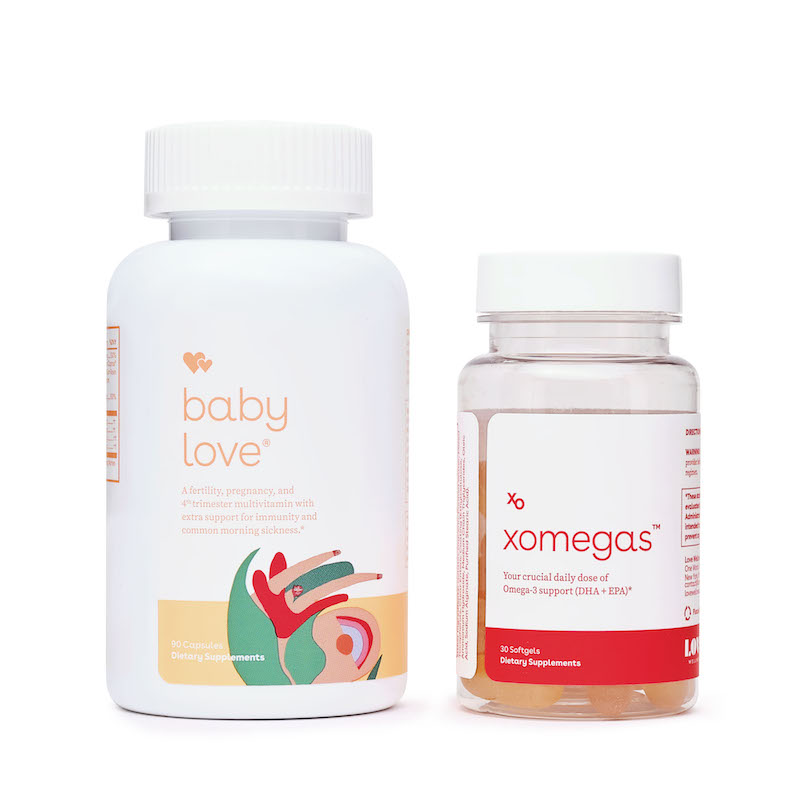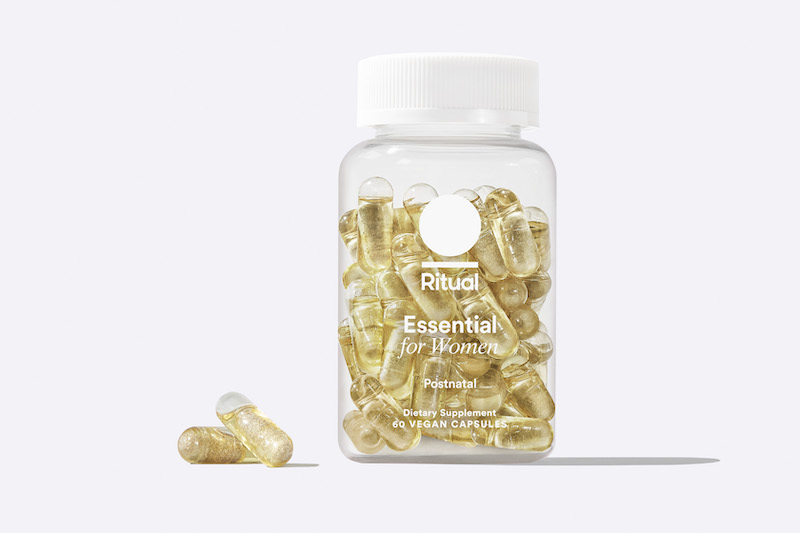A New Wave of Prenatal and Postnatal Vitamins Aims To Revamp Pregnancy Nutrition
Many of these new supplements have spectacular branding, upgraded flavors and capsule styles, and customizable options—and that’s not necessarily a bad thing, according to Lauren Manaker, RDN, a dietitian who focuses on prenatal and postnatal health. “Every individual has different nutritional needs based on their genetics, lifestyle, and pregnancy,” she says. While all the options might seem confusing at first, having more choices ultimately benefits you, the consumer. “If the experience is fun, then the chances of actually taking the pills is higher,” says Manaker.
- Felice Gersh, MD, board-certified OB/GYN and founder of the Integrative Medical Group of Irvine
- Lauren Manaker, MS, RDN, LD, registered dietitian and prenatal and postnatal health expert
- Tamika Cross, MD, FACOG, board certified physician and OB/GYN in Pearland, Texas
What are the benefits of prenatal vitamins—and why should people consider them?
While getting vitamins and minerals from food sources is generally best (and a healthy diet is important when you’re expecting), experts say it’s still essential for everyone to supplement before, during, and after pregnancy. “As a registered dietitian with 20 years under my belt, I have yet to meet a pregnant person who is able to meet 100 percent of [their] increased needs via diet,” says Manaker.
Getting all of these nutrients is crucial during and after pregnancy, because nutrient deficiencies can impact your health as well as your baby’s, according to Felice Gersh, MD, the founder and director of the Integrative Medical Group of Irvine, in Irvine, CA, and author of PCOS SOS Fertility Fast Track.

{{post.sponsorText}}
Thus, the benefits of prenatal vitamins—which provide those nutrients in once- or twice-daily pills—are immense. When you’re pregnant, for example, a folic acid deficiency is tied to neural tube defects that cause spina bifida (a birth defect of the spine) in babies. That’s why the Centers for Disease Control and Prevention (CDC) recommends all people who become pregnant take 400 mcg of folic acid (or methylated folate) every day to support healthy nervous system development and reduce the risk of neural tube defects.
Iron is also important. During pregnancy, your doctor will monitor you for anemia—a deficiency in iron due to the increased blood required to supply your baby with oxygen. “Anemia in pregnancy is very common and oftentimes supplemental iron is essential” in the second and third trimesters, says Tamika Cross, MD, an OB/GYN based in Houston, TX.
Beyond folic acid and iron, recommendations for prenatal supplemental essentials aren’t set in stone. Added calcium could be beneficial because your body uses calcium from your bones to supply your growing baby—and if you’re not getting enough of the mineral, that could put you at an increased risk for osteoporosis (a type of bone diseasedown the line. Manaker also suggests looking for a supplement that contains vitamin B12, iodine, choline, and DHA omega-3 fatty acids. Getting those nutrients from diet alone, “can be challenging for many people,” she explains. And Drs. Cross and Gersh suggest adding vitamins A, C, E, and D to that list. Other nice-to-haves on Dr. Gersh’s list include vitamin K and magnesium.
One important note: supplements aren’t regulated by the Food and Drug Administration. That means the ingredient levels advertised on the labels aren’t always accurate. Manaker says your best bet is to check that the supplement you choose is certified by a third-party organization such as ConsumerLab.com, NSF International, U.S. Pharmacopeia (USP), or UL (a for-profit company that made its name by testing electronics).
Read on for some of the latest supplement options available for people who become pregnant, and the experts’ take on their benefits. (To note: Among the four brands we reviewed, Love Wellness and Perelel aren’t yet third-party certified, although they say they have rigorous in-house testing. Momful is UL-certified, while Ritual says its supplements are tested by Eurofins and IEH Labratories.)
Speaking of pregnancy nutrition, here's what a dietitian says you should eat during each trimester:

Perelel
Perelel ($49.50 a month) is a prenatal vitamin company created by OB/GYNs that launched more than four years ago. Banafsheh Bayati, MD, the company's co-founder, says that many existing vitamins take a one-size-fits-all approach to supplementation that doesn’t take into account the evolving nutritional needs of mother and baby as they advance through each stage of pregnancy. “Pregnancy goes in phases, where each [phase] requires different nutrients to properly support both mother and baby. The timing of nutrients is paramount,” she says.
The brand’s regimen starts with a traditional prenatal blend of 21 vitamins, which is taken during all three trimesters of pregnancy. In the first trimester, an additional “no nausea” pack includes 25 milligrams (mg) of B6 and 300 mg ginger extract. it also comes alongside an extra folate capsule and a DHA and EPA omega-3 pill for the baby’s brain development. The second-trimester pack swaps the ginger for vitamin D, magnesium, and calcium for bone health, while the third-trimester pack tacks on a probiotic capsule.
The packs contain multiple pills—but they’re all small to make it easier to take every single day. “Some women experience incredible nausea and cannot tolerate any vitamins at all,” explains Dr. Bayati. “By having a separate and very small folate supplement [in the first trimester], these women can take just that tiny pill and cover their minimum required needs.” She adds that they saved calcium for the second trimester since it can be harder to digest and is only needed in higher doses later in pregnancy.
The experts’ review: Dr. Gersh says adjusting levels of different supplements throughout pregnancy isn’t a bad idea, but it isn’t always essential. But Manaker believes the trimester approach makes sense. “It looks like this company tackles challenges specific to trimester and is much more targeted,” she says. For example, ginger and B6 fight nausea, which typically disappears by the second trimester. And supplementing with certain strains of lactobacillus (a type of probiotic) may be helpful if you have a family history of allergies, says Manaker. “Some data suggests that this can reduce the risk of baby developing eczema,” she says. Dr. Gersh adds that research also suggests that taking probiotics can lower the rate of all pregnancy-related complications.
Love Wellness
Love Wellness’s Baby Love prenatal vitamin ($40 a month), which launched in October, contains a blend of 25 vitamins, minerals, and “nutraceuticals” (i.e., herbs) designed for preconception, pregnancy, and postpartum. The brand’s founder, Lauren Bosworth, says she created it for two reasons: “Instagram brands prioritize capsule design over creating complete formulas, and legacy brands generally use too many fillers for women to feel good about during this stage of life.” Plus, she wanted to add ingredients to benefit the immune system and offer morning sickness relief.
Alongside basics like folate, iron, and calcium, Baby Love has ingredients it says fight common pregnancy symptoms: ginger and extra vitamin B6 for nausea; vitamins A, C, zinc, and echinacea to fight infections and support immunity; riboflavin to zap fatigue; and cranberry extract to reduce the risk of bladder infections. It also comes paired with a separate omega-3 supplement to support fetal brain development.
The experts’ review: Manaker says more is only better in some contexts. “Why put extra stress on your body to get rid of nutrients that you don't need?” she says, especially if it makes a supplement more expensive. And although there is data to support the brand’s claims for most of the nutrients it includes, the product may not include enough of certain ingredients. Manaker points out that at least 120 mg of cranberry extract has been shown to help prevent UTIs, but Baby Love contains 75 mg. (Some researchers argue there simply isn’t enough evidence to show any benefit from cranberry extract, period.) Manaker adds that pregnant people need 450 mg per day or more of choline, but the supplement only has 10 mg, which is “a drop in the bucket when looking at the big picture,” she says. However, the pill does hit recommendations of 30 to 75 grams of vitamin B6 daily shown to fight first-trimester nausea.
Ritual
Ritual is best known for making the ingredients in its supplements “traceable”: Each ingredient has an extensive page online dedicated to explaining why it’s included as well as supplier info, to help you better understand what you’re putting in your body. “We believe that people deserve to know what they are putting in their bodies and why,” says Katerina Schneider, the founder and CEO of Ritual.
The company offers a lemon-flavored Essential Prenatal with 12 nutrients and recently launched a mint-flavored Essential Postnatal for postpartum recovery and breastfeeding (both are $35 per month). The postnatal supplement contains the same nutrients as its prenatal plus vitamins A, C, and zinc to support immune function. Ritual says it left out calcium from both supplements because adults usually get enough from their diets. But they added vitamin C to the postnatal, explaining that while the vitamin can affect the absorption of vitamin B12, postpartum people have higher vitamin C needs.
The experts’ review: While you may feel that a supplement is more wholesome or natural if you know where it comes from, Manaker says supply chain info is generally more of a marketing tactic than a necessity. But the supplements—which contain ingredients that are generally beneficial for health—are verified by two outside companies, which Manaker says is important. Ritual touts its delayed-release capsule (meaning the nutrients are slowly used by the body to offer you more benefit, explains Manaker).

Momful
Momful’s suite of postnatal vitamins ($26.96 per month per supplement, or $71.10 for all three) was initially designed to help during breastfeeding, but its nutrients also support postpartum recovery. “After overcoming my personal struggle with breastfeeding, one that put my daughter’s health at stake and caused me significant anxiety and guilt, I found that I was far from alone,” says Whitney Poma, the founder and CEO of Momful.
The brand’s postnatal multivitamin simplifies the challenges of being a new parent with targeted levels of nutrients that support recovery from childbirth and are important for breastfeeding. A separate Mom Brain supplement includes additional omega-3 fatty acids to boost the baby’s cognitive development and mom’s mood. A third and separate lactation supplement contains an herbal blend of fenugreek, milk thistle, and Shatavari that’s meant to optimize breastmilk production.
The experts’ review: Manaker understands why the omega 3s are in a separate pill (they contain oil, while the multivitamins are in a solid format), but she says they may not be a necessary supplement if you eat enough seafood. She also says that there are no scientific studies (only anecdotal evidence) suggesting that the herbs included in the lactation supplement are beneficial and that they should only be taken under the supervision of a health-care provider.
Oh hi! You look like someone who loves free workouts, discounts for cult-fave wellness brands, and exclusive Well+Good content. Sign up for Well+, our online community of wellness insiders, and unlock your rewards instantly.
Loading More Posts...

